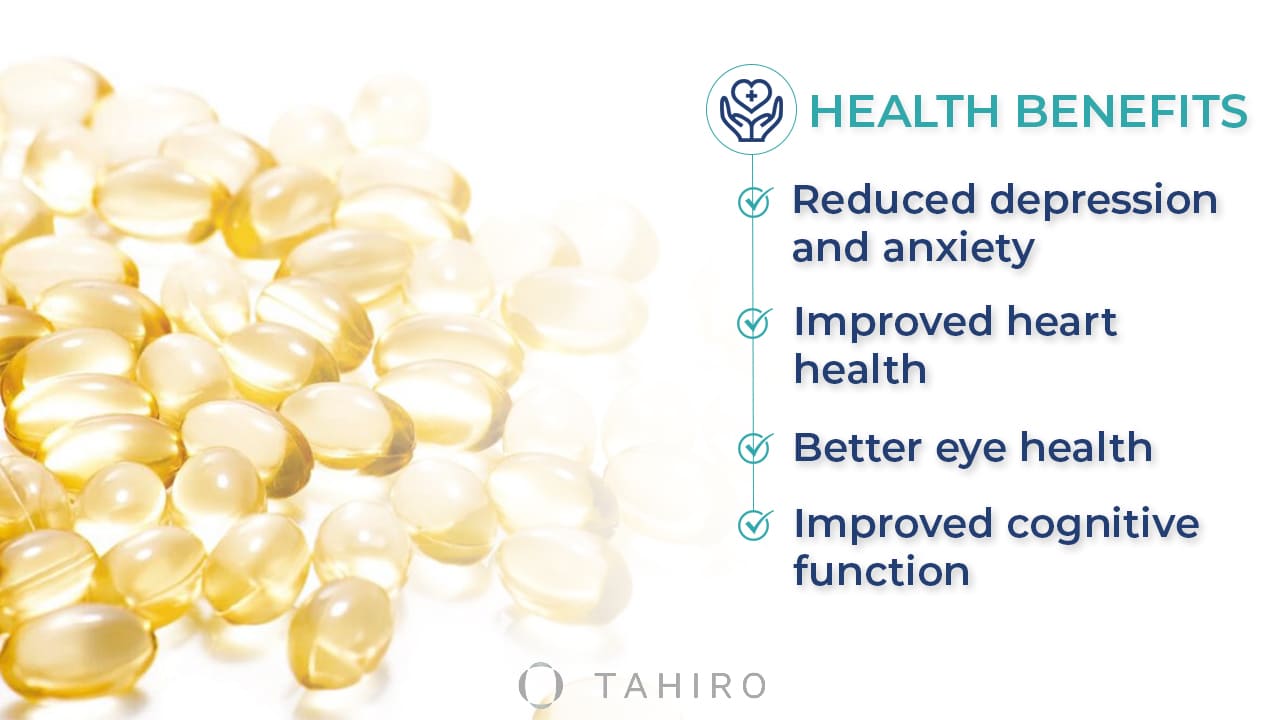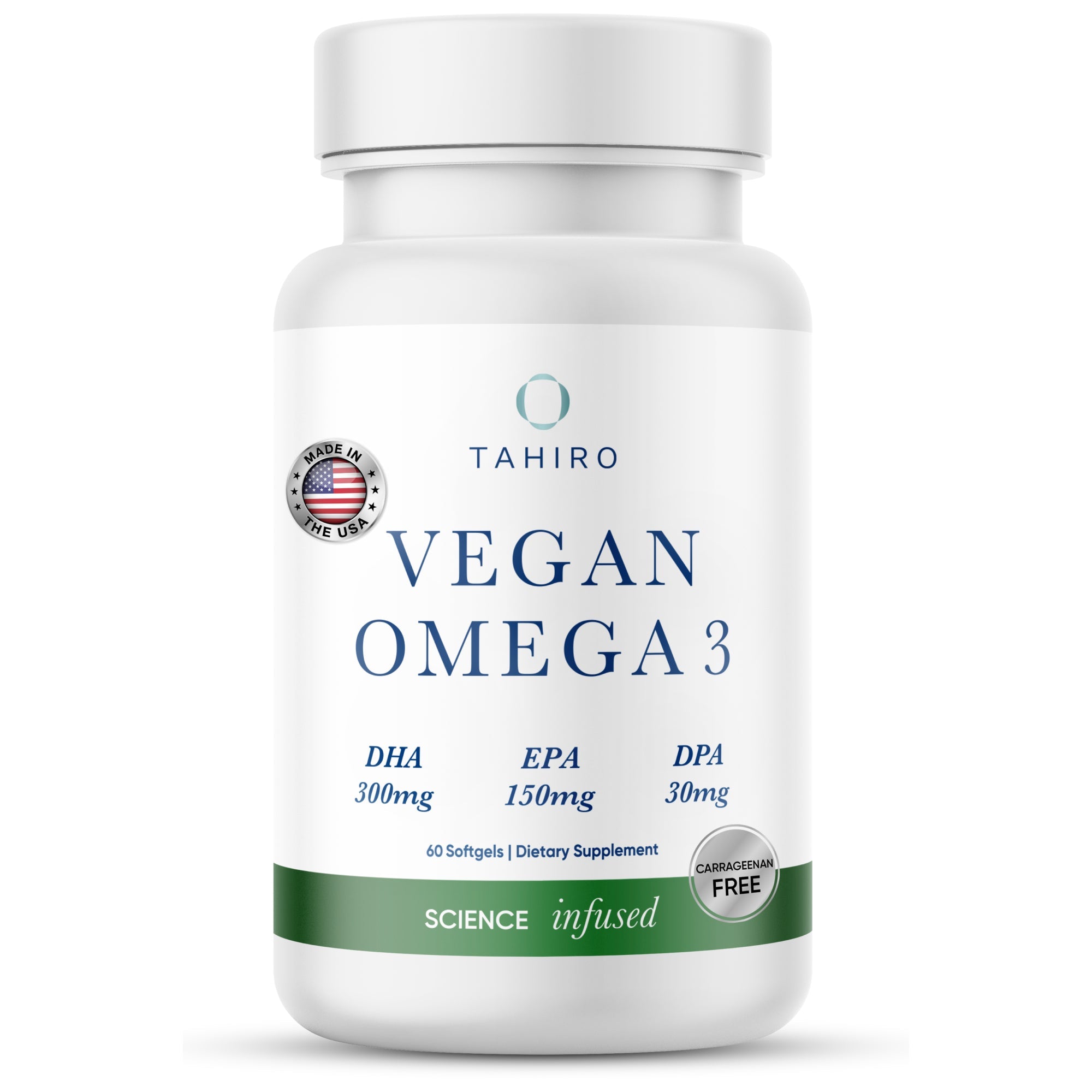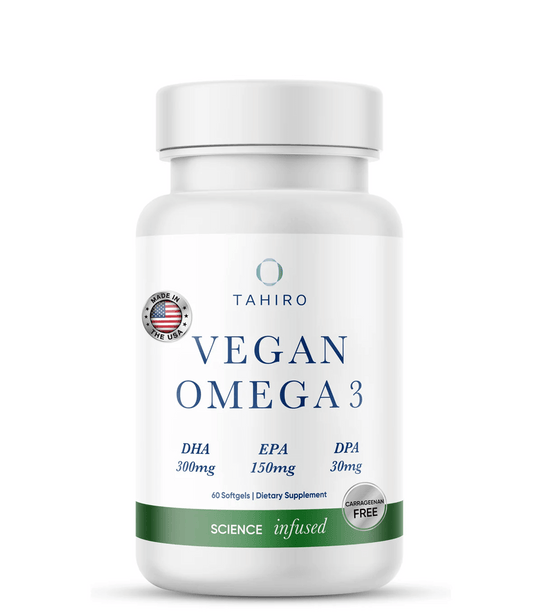Omega-3 fatty acids play a crucial role in the body. While you can get it from natural sources, such as flaxseeds and hemp seeds, sometimes they might not provide enough omega-3 to improve overall health. In addition, not all sources contain significant amounts of long-chain omega-3s like EPA and DHA, which have been found to have many different health benefits.
Omega-3 supplements can help provide a steady dose of omega-3 fatty acids without worrying about how much you are getting from your diet. However, if you’ve recently started taking an omega-3 supplement, you might wonder how long it will be until you notice the effects.
In this article, we’ll go over the benefits of omega-3, how to increase it naturally, how much to take, when to take it, and how long until it starts to work.
What Are Omega-3s?

What Happens If You Have An Omega-3 Deficiency

How To Increase The Omega-3 Intake?
-
Mackerel
-
Chia seeds
-
Walnuts
-
Cod liver oil
-
Flaxseeds
-
Salmon
-
Herring
-
Sardines
-
Oysters
Does Omega-3 Have an Immediate Effect?
Omega-3, whether from supplements or natural sources, generally does not produce immediate effects. The benefits develop gradually as the fatty acids accumulate in your body and start to influence various biological processes.
When you begin taking Omega-3, the fatty acids are first incorporated into the cell membranes, which enhances their fluidity and flexibility. This process starts within hours but requires consistent intake over weeks to significantly impact cell function. Improved membrane fluidity facilitates better cell signaling, nutrient transport, and waste removal. Omega-3s also play a critical role in producing eicosanoids, which are signaling molecules that regulate inflammation, immunity, and other cellular functions. Over time, the incorporation of Omega-3 into cell membranes and the production of beneficial eicosanoids lead to reduced inflammation, improved cardiovascular health, enhanced brain function, and overall cellular health.
How Long Does It Take For Omega-3 To Work?
It’s important to be consistent with omega-3 supplements in order to see the benefits. Even though you’ll experience a rise in omega-3 levels in your bloodstream after just one dose, it’s unlikely that you’ll feel any significant effects. To get the benefits of omega-3 supplements, you’ll need to take them consistently over a longer period of time.

How long does it take omega-3 to get into your system?
Omega-3 fatty acids are absorbed into your bloodstream within a few hours of ingestion. The fatty acids are then incorporated into cell membranes throughout your body. Full integration into cell membranes and noticeable health benefits generally occur over several weeks.
Absorption Comparison: Supplements, Algae, and Fish Oil
|
Source
|
Absorption Rate
|
Bioavailability
|
Benefits Onset
|
|
Supplements
|
Optimized for fast absorption
|
High, especially in triglyceride or phospholipid forms
|
Noticeable benefits within a few weeks
|
|
Algae
|
Well-absorbed, especially DHA
|
Comparable to fish oil, great for vegetarians and vegans
|
Similar to fish oil, noticeable benefits within a few weeks
|
|
Fish Oil
|
Readily absorbed due to natural EPA and DHA content
|
High, particularly in triglyceride form
|
Benefits start to appear within a few weeks
|
Key Points on Absorption:
-
Cell Membrane Integration: Over the next few days to weeks, Omega-3 fatty acids are incorporated into the cell membranes, particularly in the heart, brain, and other tissues.
-
Full Benefits: While absorption is relatively quick, the full health benefits, such as reduced inflammation and improved heart and brain function, typically take several weeks to become noticeable.
Consistent daily intake of Omega-3, whether through supplements like Tahiro's high-purity Omega-3 or natural sources like fatty fish and flaxseeds, is crucial for achieving and maintaining optimal health benefits.










